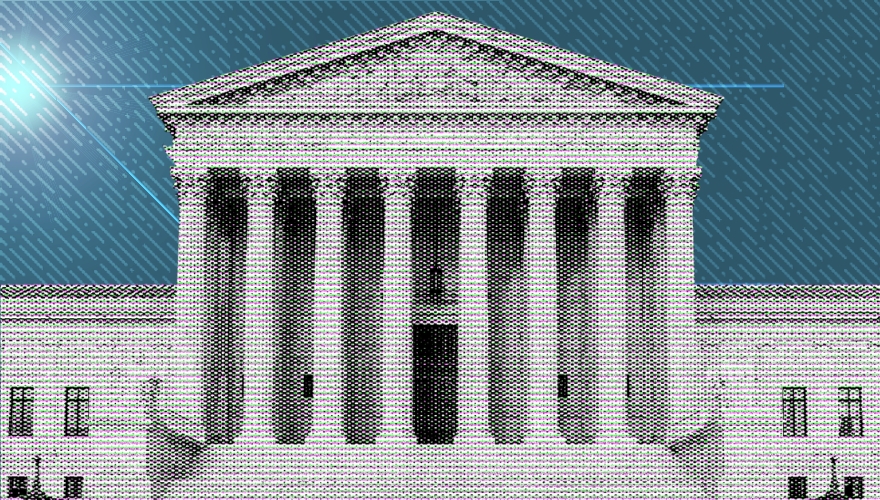The United States Supreme Court says Texas can enforce an immigration law that is being challenged by the Biden administration while litigation continues.
The Court rejected an emergency request made by the federal government to block Texas from enforcing Senate Bill 4, which had been temporarily stayed by a lower court. The Biden administration maintains that states cannot establish laws regarding immigration and that immigration is exclusively a federal matter.
“The [Fifth Circuit Court of Appeals] has not entered a stay pending appeal. Instead, in an exercise of its docket management authority, it issued a temporary administrative stay and deferred the stay motion to a merits panel, which is considering it in conjunction with Texas’s challenge to the District Court’s injunction of S. B. 4,” stated the court in its ruling on March 19. “Thus, the Fifth Circuit has not yet rendered a decision on whether a stay pending appeal is warranted. That puts this case in a very unusual procedural posture.”
SB 4 was passed by the state legislature in the fall of 2023. It permits police in Texas to arrest foreign nationals who entered the country illegally. Illegal aliens in violation of the state law can face criminal penalties or be deported to Mexico on a judge’s order. Governor Greg Abbott, who has repeatedly criticized President Joe Biden for not taking significant action to stop illegal crossing at the U.S.-Mexico border, signed the bill in December.
A federal judge issued a temporary injunction in February after the U.S. Department of Justice and the American Civil Liberties Union filed a lawsuit. Judge David Ezra of the U.S. District Court for the Western District of Texas affirmed the Biden administration’s claim that Texas’ law conflicted with federal law.
“Texas will immediately appeal this decision, and we will not back down in our fight to protect our state—and our nation—from President Biden's border crisis,” Abbott said in response to the ruling. “The President of the United States has a constitutional duty to enforce federal laws protecting States, including laws already on the books that mandate the detention of illegal immigrants. Texas has the right to defend itself because of President Biden's ongoing failure to fulfill his duty to protect our state from the invasion at our southern border. Even from the bench, this District Judge acknowledged that this case will ultimately be decided by the U.S. Supreme Court.”
Judge Samuel Alito extended the pause in March, preventing Texas from enforcing the law on March 4 while the larger court considered the federal challenge. The Court’s March 19 ruling vacates Alito’s freeze.
The Court noted that administrative stays are intended to “permit time for briefing and deliberation” after an emergency application is received.
“Their point is to minimize harm while an appellate court deliberates, so the choice to issue an administrative stay reflects a first-blush judgment about the relative consequences of staying the lower court judgment versus allowing it go to into effect,” stated a concurring opinion written by Justice Amy Coney Barret
“Texas argues that the District Court’s injunction of S. B. 4 prevents it from addressing an escalating crisis at the border; the United States argues that S. B. 4 undermines foreign relations and injures its sovereign interest in enforcing federal law, including those provisions granting certain migrants reprieve from removal,” the opinion continues. “But for the brief period of uncertainty—i.e., the time it takes the court to deliberate—the Fifth Circuit apparently concluded that the consequences of erroneously enjoining the enforcement of S. B. 4 would be worse than those of erroneously lifting the injunction.”
The court said an administrative stay should last “no longer than necessary to make an intelligent decision on the motion for a stay pending appeal.”
Justice Sonia Sotomayor dissented and was joined by Justice Ketanji Brown Jackson.
“Today, the Court invites further chaos and crisis in immigration enforcement. Texas passed a law that directly regulates the entry and removal of noncitizens and explicitly instructs its state courts to disregard any ongoing federal immigration proceedings,” she wrote. “That law upends the federal state balance of power that has existed for over a century, in which the National Government has had exclusive authority over entry and removal of noncitizens.”
Justice Elena Kagan also offered a dissenting opinion.

